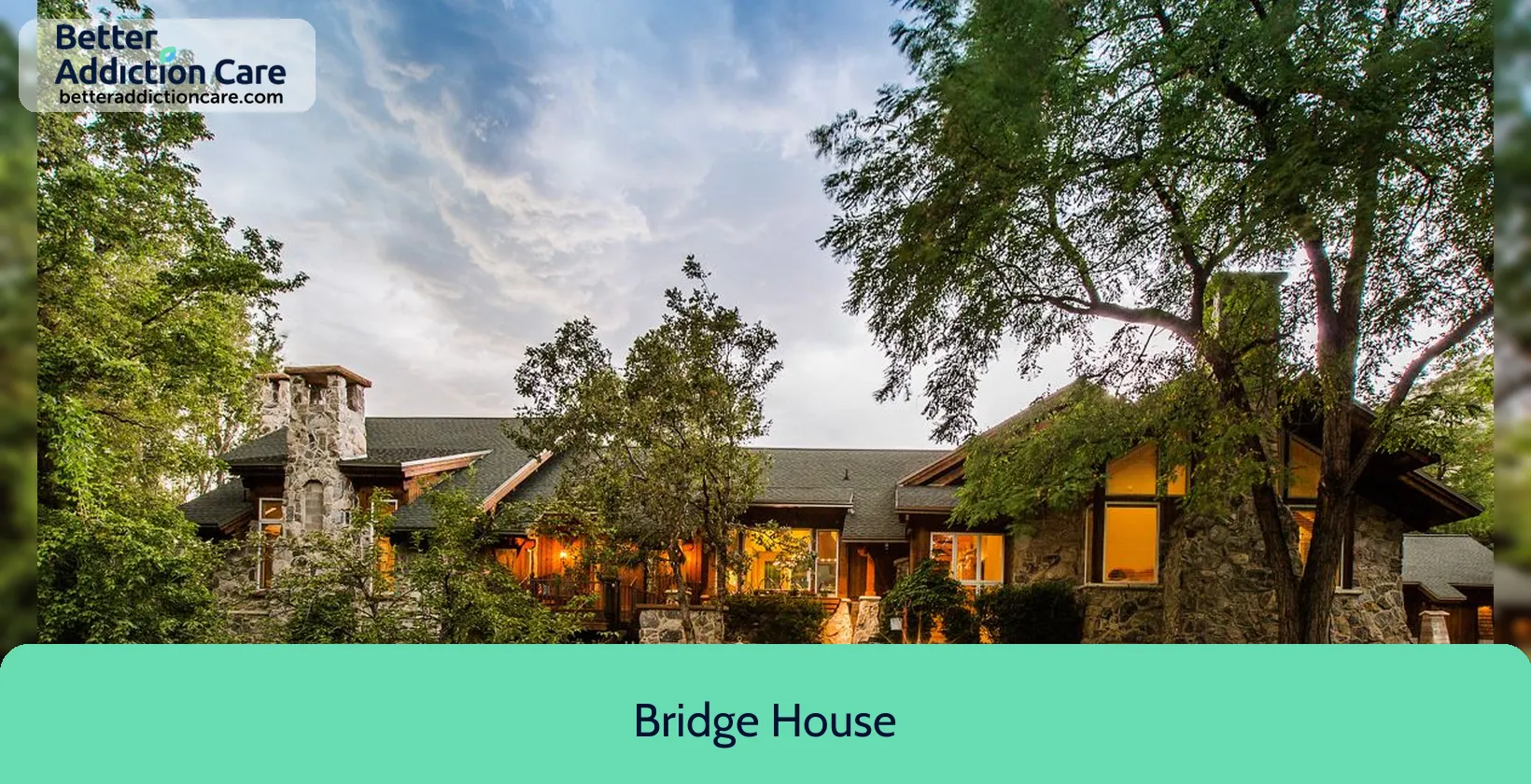Bridge House
Overview
Bridge House is a mental health treatment center for people seeking treatment near Davis County. As part of their treatment modalities for recovery, Bridge House provides couples/family therapy, group counseling, and cognitive behavioral therapy during treatment. Bridge House is located in Farmington, Utah, accepting cash or self-payment for treatment.
Bridge House at a Glance
Payment Options
- Cash or self-payment
Assessments
- Screening for tobacco use
- Comprehensive mental health assessment
- Comprehensive substance use assessment
Age Groups
- Young adults
- Adults
- Seniors
Ancillary Services
- Assertive community treatment
- Case management service
- Chronic disease/illness management
- Diet and exercise counseling
- Education services
Highlights About Bridge House
6.65/10
With an overall rating of 6.65/10, this facility has following balanced range of services. Alcohol Rehabilitation: 8.00/10, Drug Rehab and Detox: 6.00/10, Insurance and Payments: 6.00/10, Treatment Options: 6.61/10.-
Alcohol Rehabilitation 8.00
-
Treatment Options 6.61
-
Drug Rehab and Detox 6.00
-
Insurance and Payments 6.00
Treatment At Bridge House
Treatment Conditions
- Mental health treatment
- Substance use treatment
- Co-occurring Disorders
Care Levels
- Hospital inpatient treatment
Treatment Modalities
- Couples/family therapy
- Group counseling
- Cognitive behavioral therapy
- Dialectical behavior therapy
- Activity therapy
Ancillary Services
Additional Services
- Pharmacotherapies administered during treatment
- HIV testing
Special Programs
- Clients with co-occurring mental and substance use disorders
- Clients who have experienced trauma
- Clients who have experienced intimate partner violence, domestic violence
- Persons 18 and older with serious mental illness (SMI)
- Persons with post-traumatic stress disorder (PTSD)
Get Help Now
Common Questions About Bridge House
Contact Information
Other Facilities in Farmington

6.56

7.36
Browse rehab centers near Farmington and in other cities across Utah
DISCLAIMER: The facility name, logo and brand are the property and registered trademarks of Davis Behavioral Health 380 South 200 West, and are being used for identification and informational purposes only. Use of these names, logos and brands shall not imply endorsement. BetterAddictionCare.com is not affiliated with or sponsored by Davis Behavioral Health 380 South 200 West.

